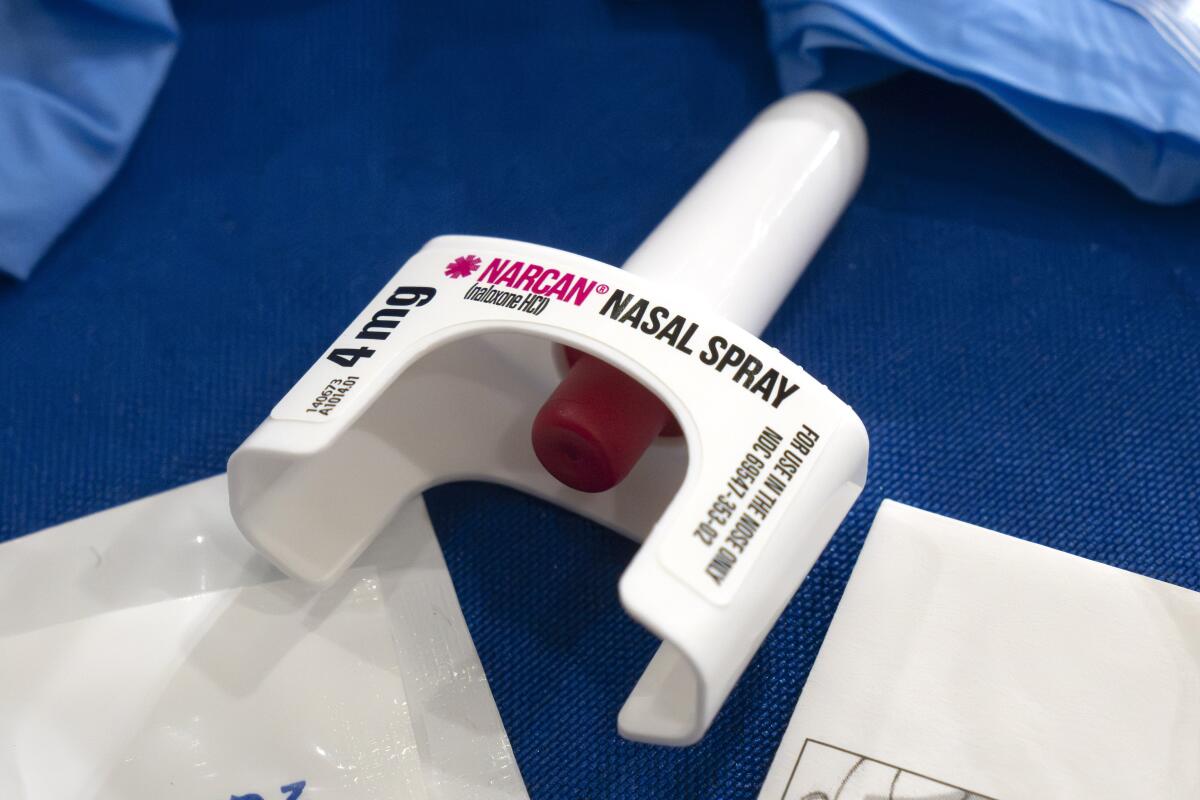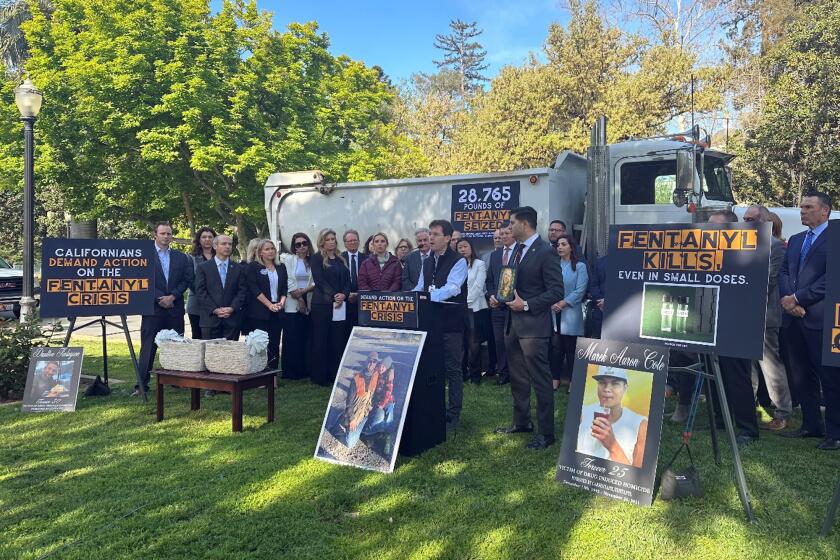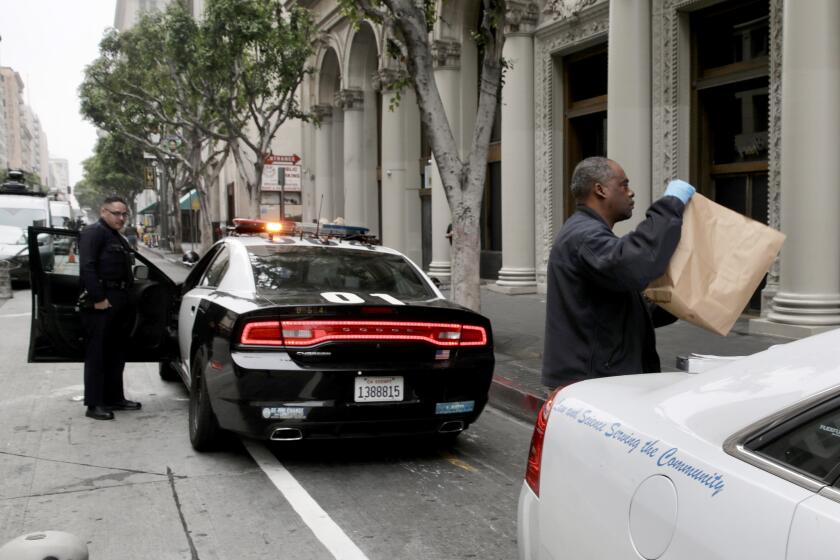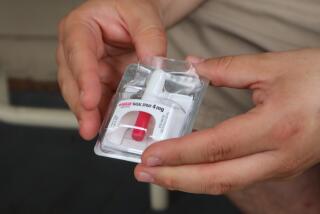Could a Narcan vending machine help stem opioid deaths among young people?

- Share via
A free vending machine that dispenses the overdose-reversal drug naloxone was unveiled this week at Santa Clara University, the first such campus resource in the Bay Area, school officials said.
The machine at the school’s Benson Memorial Center will dispense two-packs of Narcan, a nasal spray for delivering naloxone, with instructions on how to recognize signs of an overdose, how to administer the spray and to call 911, university officials said in a statement. A QR code on the machine also has a link to a California Public Health Department training video on Narcan.
School officials across the U.S. have been attempting to stem a surge in overdose deaths, especially among teenagers, by increasing the availability of naloxone, which can reverse an opioid overdose in minutes.
Students were the driving force behind the movement at Santa Clara University to apply the principles of harm reduction, which aims to prevent drug-related deaths by providing treatment and services instead of promoting abstinence-only policies, said assistant public health professor Jamie Chang, who helped spearhead the campaign for the machine.
“With the free vending machine that is centralized in the student commons area, we want to de-stigmatize this medication and give students the tools and education they need to keep our community safer,” Chang said. “Now, students absolutely recognize that there are life-saving tools like naloxone available, and that they can be part of the solution to the opioid crisis.”
At a Thursday hearing, state lawmakers advanced four bills, including one that would increase penalties for fentanyl dealers.
Fentanyl, a substance typically used in medical settings that is up to 100 times stronger than morphine and 50 times stronger than heroin, has been increasingly found in the supply of other street drugs or counterfeit prescription pills, contributing to the rise in opioid deaths.
The Campus Opioid Safety Act, which went into effect Jan. 1, requires California community colleges and public colleges to distribute Narcan and provide training.
Chang, who has been helping with small-scale naloxone distribution for years, said the dispenser at Santa Clara University is the first of its kind to be unveiled at a Bay Area university.
“The students 100% understood the need for this on campus, especially because young people are being hit very hard by the fentanyl crisis,” she said. “They wanted naloxone to be more accessible. Their advocacy and persistence in seeking solutions was pivotal to this launch.”
Parents whose children died of fentanyl-laced pills are demanding stricter penalties and are lobbying Silicon Valley for social media protections.
The machine’s unveiling comes almost three years after Charlie Ternan, 22, died in a fraternity bedroom at Santa Clara University a few weeks shy of graduation. Ternan had intended to buy Percocet, a prescription drug he had taken after his surgery, but died after ingesting a counterfeit pill containing fentanyl.
Ternan’s father, Ed Ternan, launched the Pasadena-based group Song for Charlie to educate young people about the dangers of fentanyl and counterfeit drugs.
In Los Angeles, USC has launched NaloxoneSC, an online Narcan distribution program, in an effort to curb overdose deaths at the school. The program was founded by pharmacy students and a registered pharmacist.
Free naloxone kits can be picked up at USC’s Health Sciences Campus and University Park Campus.
More to Read
Sign up for Essential California
The most important California stories and recommendations in your inbox every morning.
You may occasionally receive promotional content from the Los Angeles Times.













